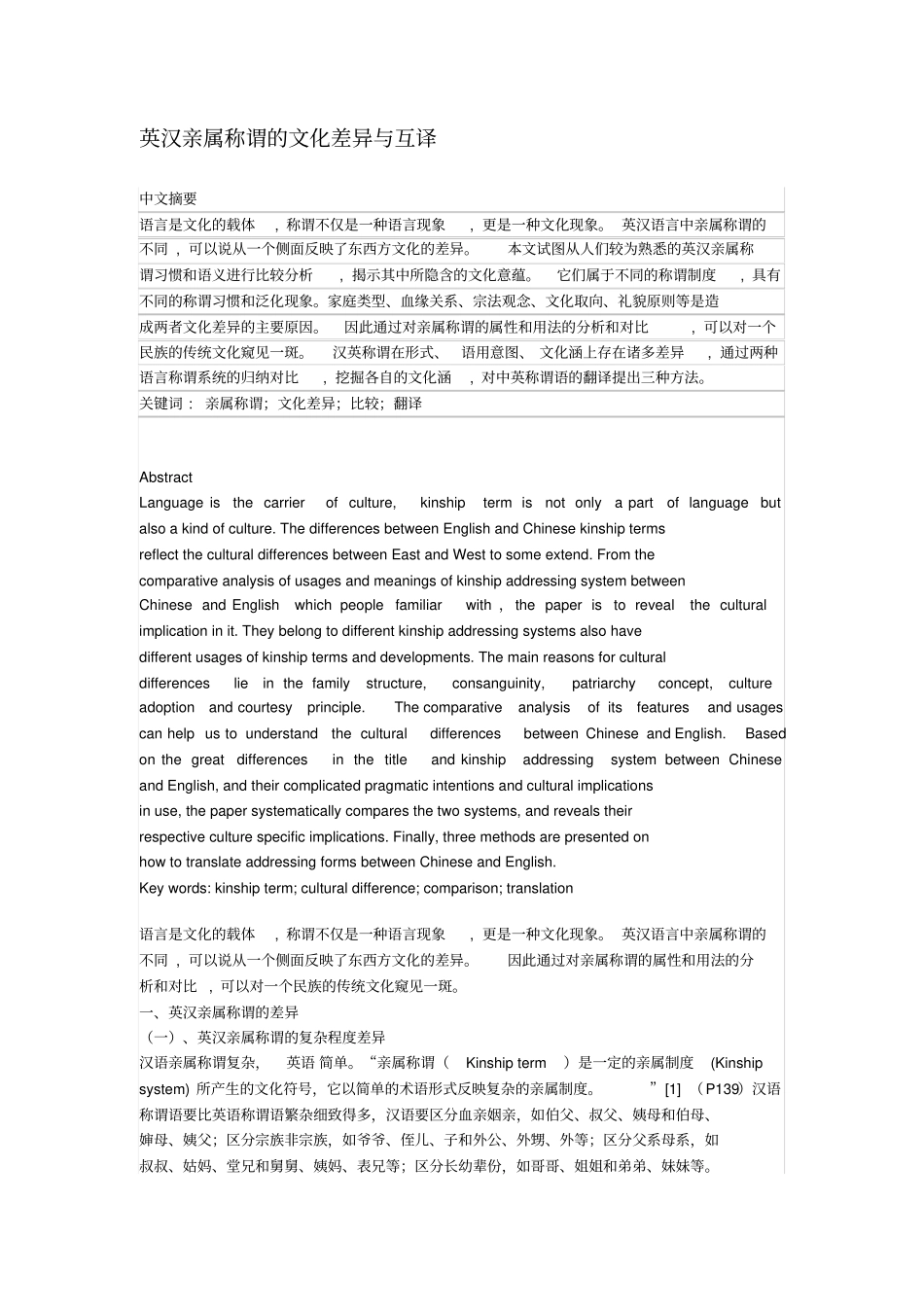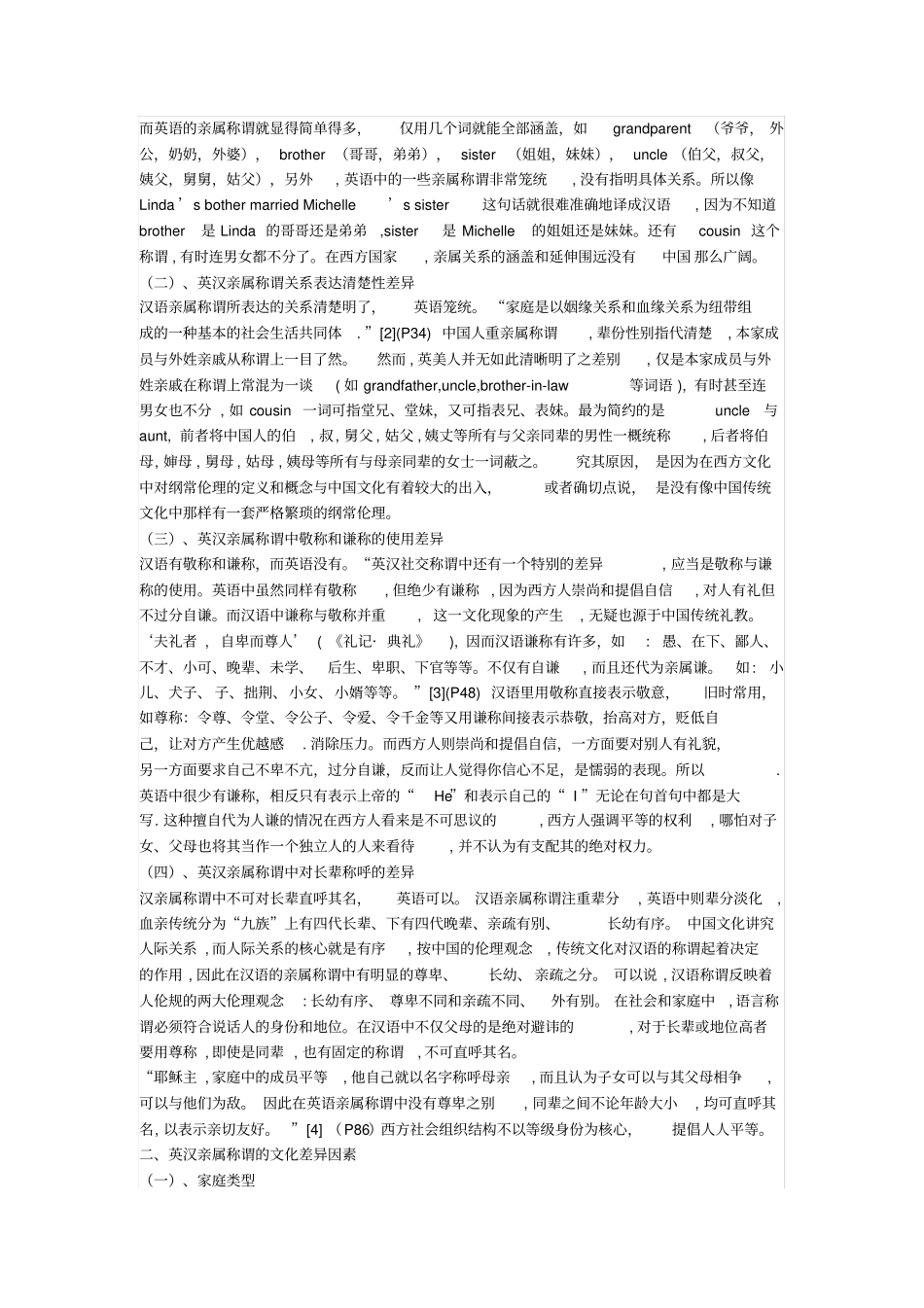英汉亲属称谓的文化差异与互译中文摘要语言是文化的载体 , 称谓不仅是一种语言现象 , 更是一种文化现象。 英汉语言中亲属称谓的不同 , 可以说从一个侧面反映了东西方文化的差异。本文试图从人们较为熟悉的英汉亲属称谓习惯和语义进行比较分析 , 揭示其中所隐含的文化意蕴。它们属于不同的称谓制度 , 具有不同的称谓习惯和泛化现象。家庭类型、血缘关系、宗法观念、文化取向、礼貌原则等是造成两者文化差异的主要原因。因此通过对亲属称谓的属性和用法的分析和对比 , 可以对一个民族的传统文化窥见一斑。汉英称谓在形式、语用意图、 文化涵上存在诸多差异 , 通过两种语言称谓系统的归纳对比 , 挖掘各自的文化涵 , 对中英称谓语的翻译提出三种方法。关键词 : 亲属称谓;文化差异;比较;翻译Abstract Language is the carrier of culture, kinship term is not only a part of language but also a kind of culture. The differences between English and Chinese kinship terms reflect the cultural differences between East and West to some extend. From the comparative analysis of usages and meanings of kinship addressing system between Chinese and English which people familiar with ,the paper is to reveal the cultural implication in it. They belong to different kinship addressing systems also have different usages of kinship terms and developments. The main reasons for cultural differences lie in the family structure, consanguinity, patriarchy concept, culture adoption and courtesy principle. The comparative analysis of its features and usages can help us to understand the cultural differences between Chinese and English. Based on the great differences in the title and kinship addressing system between Chinese and English, and their complicated pragmatic intentions and cultural implications in use, the paper systematically compares the two systems, and reveals their respective culture specific implications. Finally, three methods are presented on...


